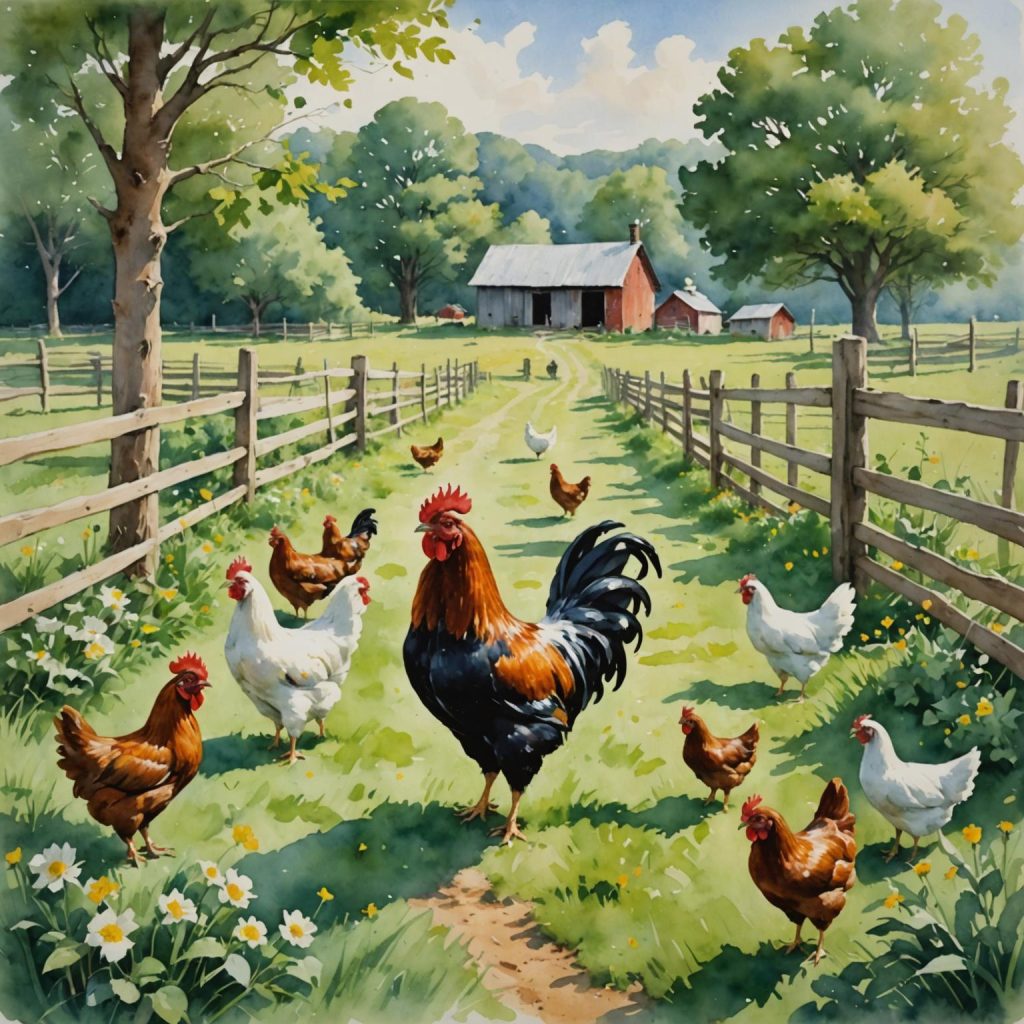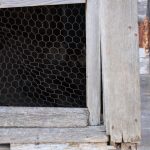Free range chickens have specific needs that must be met in order for them to thrive. These birds require ample space to roam and forage, as well as protection from predators and the elements. They also need access to fresh water and a balanced diet to ensure their health and well-being. Understanding these needs is crucial for anyone considering raising free range chickens.
In addition to space and protection, free range chickens also require social interaction and mental stimulation. These birds are highly social creatures and thrive in environments where they can interact with other chickens and engage in natural behaviors such as dust bathing and foraging. Providing an environment that allows for these natural behaviors is essential for the overall health and happiness of the flock.
Table of Contents
- 1 Choosing the Right Location for Your Chicken Coop
- 2 Designing and Building the Ideal Chicken Coop
- 3 Providing Adequate Space for Free Range Grazing
- 4 Ensuring Proper Nutrition and Access to Fresh Water
- 5 Implementing Natural Predation and Disease Prevention Measures
- 6 Monitoring and Maintaining a Healthy and Happy Flock
Choosing the Right Location for Your Chicken Coop
When it comes to choosing the right location for your chicken coop, there are several factors to consider. First and foremost, the location should provide ample space for the chickens to roam and forage. It should also be well-drained and free from standing water to prevent the spread of disease. Additionally, the location should offer protection from predators and the elements, such as wind, rain, and extreme temperatures.
Another important consideration when choosing a location for your chicken coop is accessibility. The coop should be easily accessible for feeding, watering, and egg collection, as well as for cleaning and maintenance. It should also be located in an area that is convenient for you to monitor and maintain on a regular basis. Finally, the location should be in compliance with any local zoning or land use regulations that may apply to keeping chickens on your property.
Designing and Building the Ideal Chicken Coop
Designing and building the ideal chicken coop is essential for the health and well-being of your flock. The coop should provide ample space for the chickens to move around and engage in natural behaviors, such as dust bathing and foraging. It should also offer protection from predators and the elements, with secure fencing and a sturdy roof to keep out unwanted visitors and provide shelter from wind, rain, and extreme temperatures.
In addition to space and protection, the coop should also be well-ventilated to ensure good air quality and prevent the buildup of moisture, which can lead to respiratory issues and other health problems for the chickens. It should also be easy to clean and maintain, with removable nesting boxes and roosts, as well as access doors for feeding, watering, and egg collection. Finally, the coop should be constructed using durable materials that can withstand the wear and tear of daily use and provide a safe and comfortable environment for the chickens.
Providing Adequate Space for Free Range Grazing
One of the most important aspects of raising free range chickens is providing them with adequate space for grazing. Chickens are natural foragers and require plenty of space to roam and search for insects, seeds, and other natural food sources. Providing ample space for grazing not only ensures the health and well-being of the chickens but also allows them to exhibit natural behaviors and engage in physical activity.
When planning for free range grazing, it’s important to consider the size of your flock and the amount of space available on your property. A general rule of thumb is to provide at least 10 square feet of outdoor space per chicken to allow for adequate grazing and exercise. This can be achieved by creating a designated grazing area within a larger fenced-in enclosure or by allowing the chickens to roam freely within a larger outdoor space.
In addition to providing ample space for grazing, it’s also important to rotate grazing areas regularly to prevent overgrazing and allow the land to recover. This can be done by dividing the outdoor space into smaller sections and rotating the chickens between them on a regular basis. By providing adequate space for free range grazing, you can ensure the health and happiness of your flock while also promoting sustainable land management practices.
Ensuring Proper Nutrition and Access to Fresh Water
Proper nutrition is essential for the health and well-being of free range chickens. These birds require a balanced diet that includes a mix of grains, seeds, fruits, vegetables, and protein sources such as insects or mealworms. Providing access to a variety of natural food sources is important for meeting their nutritional needs and ensuring their overall health.
In addition to a balanced diet, free range chickens also require access to fresh water at all times. Water is essential for hydration, digestion, and regulating body temperature, especially during hot weather. It’s important to provide clean, fresh water in a secure container that is easily accessible to the chickens while also preventing contamination from dirt, debris, or droppings.
To ensure proper nutrition and access to fresh water, it’s important to regularly monitor feeding and watering stations to ensure they are clean, well-stocked, and functioning properly. It’s also important to observe the behavior and health of the chickens to ensure they are getting enough food and water. By providing proper nutrition and access to fresh water, you can help ensure the health and well-being of your free range flock.
Implementing Natural Predation and Disease Prevention Measures
Predation and disease are two common threats to free range chickens that must be addressed in order to maintain a healthy flock. Implementing natural predation prevention measures such as secure fencing, predator-proof coops, and guardian animals can help protect your chickens from unwanted visitors such as foxes, raccoons, or birds of prey. It’s also important to regularly inspect fencing and coops for signs of wear or damage that could compromise their effectiveness.
In addition to predation prevention, it’s important to implement disease prevention measures such as regular cleaning and disinfection of coops, equipment, and feeding/watering stations. It’s also important to practice good biosecurity measures such as limiting exposure to outside birds or wildlife, quarantining new birds before introducing them to the flock, and monitoring for signs of illness or disease.
Regular monitoring of your flock for signs of predation or disease is essential for early detection and intervention. By implementing natural predation prevention measures and disease prevention practices, you can help protect your free range chickens from common threats while promoting their overall health and well-being.
Monitoring and Maintaining a Healthy and Happy Flock
Monitoring and maintaining a healthy and happy flock is an ongoing responsibility for anyone raising free range chickens. Regular observation of the chickens’ behavior, appearance, and overall health is essential for early detection of any issues that may arise. This includes monitoring feeding and drinking habits, egg production, social interactions, and any signs of illness or injury.
In addition to regular monitoring, it’s important to maintain a clean and well-maintained environment for your flock. This includes regular cleaning of coops, equipment, feeding/watering stations, and grazing areas to prevent the buildup of waste or contaminants that could lead to illness or disease. It’s also important to provide regular access to fresh water, clean bedding material, and a balanced diet to ensure the overall health and well-being of your chickens.
Finally, it’s important to provide social interaction and mental stimulation for your flock by allowing them to engage in natural behaviors such as dust bathing, foraging, and socializing with other chickens. This can help reduce stress and boredom while promoting overall happiness and well-being. By monitoring and maintaining a healthy and happy flock, you can ensure the long-term success of your free range chicken operation while promoting sustainable land management practices.
Meet Walter, the feathered-friend fanatic of Florida! Nestled in the sunshine state, Walter struts through life with his feathered companions, clucking his way to happiness. With a coop that’s fancier than a five-star hotel, he’s the Don Juan of the chicken world. When he’s not teaching his hens to do the cha-cha, you’ll find him in a heated debate with his prized rooster, Sir Clucks-a-Lot. Walter’s poultry passion is no yolk; he’s the sunny-side-up guy you never knew you needed in your flock of friends!







